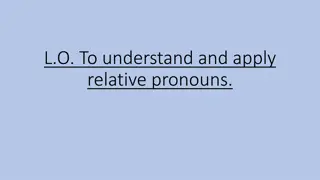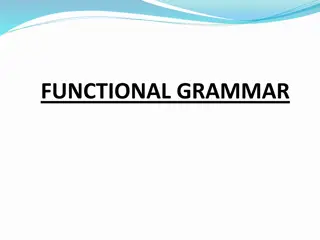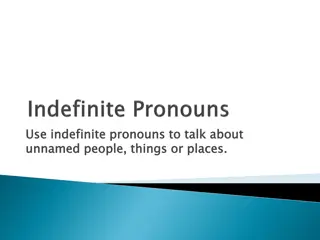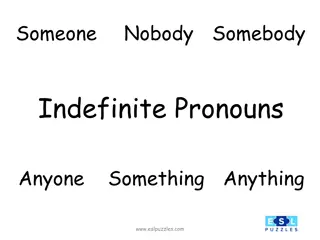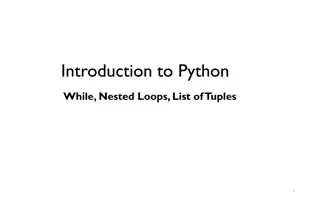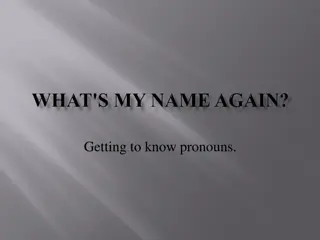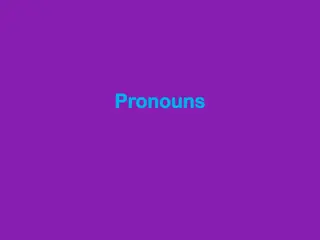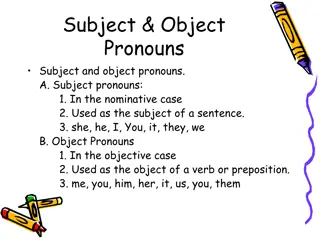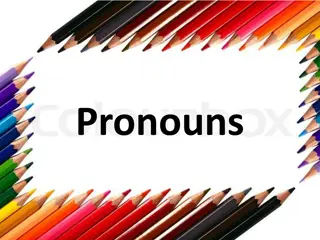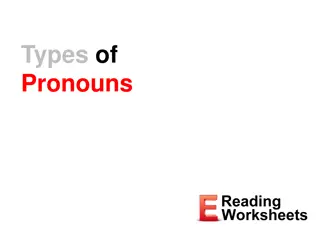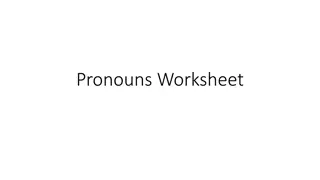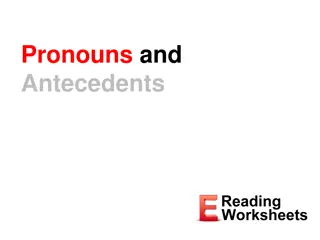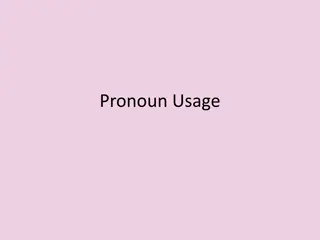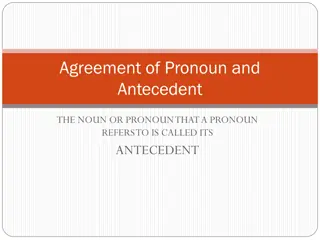Understanding Indefinite Pronouns: A Tale of Everybody, Somebody, Anybody, and Nobody
This story highlights the importance of recognizing indefinite pronouns such as everybody, somebody, anybody, and nobody. Through the tale of four individuals and a task left undone, the narrative emphasizes the roles of common, singular, and plural indefinite pronouns in subject-verb agreement. Explore the dynamics of these pronouns and enhance your understanding of their usage in sentences.
Download Presentation

Please find below an Image/Link to download the presentation.
The content on the website is provided AS IS for your information and personal use only. It may not be sold, licensed, or shared on other websites without obtaining consent from the author. Download presentation by click this link. If you encounter any issues during the download, it is possible that the publisher has removed the file from their server.
E N D
Presentation Transcript
Whose Job Is It? See if you recognize any indefinite pronouns.
This is a story about four people named Everybody, Somebody, Anybody, and Nobody. There was an important job to be done. Everybody was sure Somebody would do it. Anybody could have done it, but Nobody did it. Somebody got angry about that because it was Everybody s job. Everybody thought Anybody could do it, but Nobody realized that Everybody wouldn t do it. It ended that Everybody blamed Somebody when Nobody did what Anybody could have done.
Common Indefinite Pronounsrefer to a person, a place, a thing, or an idea that may or may not be specifically named. all both everything neither other another each few nobody several any each other many none some anybody either more no one somebody anyone everybody most nothing someone anything everyone much one something
Singular Indefinite Pronouns another each either everybody everyone everything little much neither nobody no one nothing one other somebody someone anybody anyone anything something
Plural Indefinite Pronouns both few many others several
Singular or Plural Indefinite Pronouns all any more most none some
Indefinite Pronouns Subject-Verb Agreement
Directions: Determine if each sentence has correct subject-verb agreement. If a sentence doesn t have correct subject-verb agreement, change it so that it does.
1. All of the coffee sold at the bistro are very good. 2. Each of the cookies have sprinkles on top. 3. Most of the seats was reserved for special guests. 4. Some of the guest speakers wasn t on time.
5. Neither of those buses go downtown. 6. No one in our group has a jacket. 7. Both of these flower bouquets looks fresh. 8. Either student is a great choice for student council.
9. All shelves contains books by American authors. 10. Several desserts at the bake sale were delicious. 11. A few of the tourists was exhausted by the hike. 12. All of the pie was eaten at dinner.



